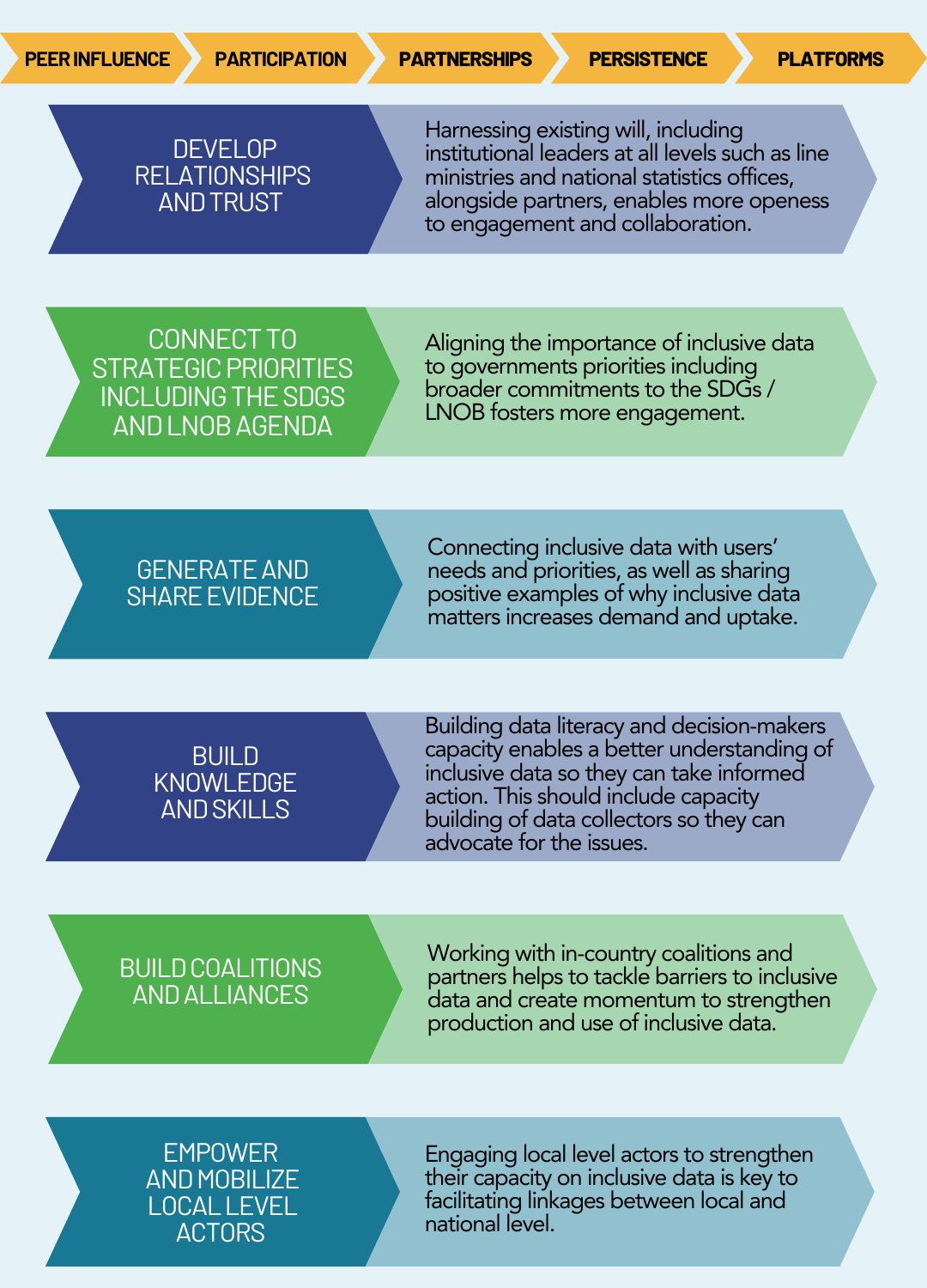The recent Sustainable Development Goals Report 2024 highlights the ongoing challenges in the collection and use of accurate, timely, and disaggregated data and the need to strengthen partnerships on inclusive data. As such, as part of the pledge to leave no one behind (LNOB), mobilizing political support and investments for data is crucial as we strive to accelerate progress towards the Sustainable Development Goals (SDGs).
July 2024 marks six years since the launch of the Inclusive Data Charter (IDC) which set out to encourage political commitments and meaningful actions to advance inclusive and disaggregated data. IDC Champions have used a range of approaches to build and sustain political will on inclusive data over the years, with many learnings along the way.
The approaches vary depending on considerations such as advocacy objectives, political context, enabling environment, resources, and capacity. But six years into the Inclusive Data Charter our extensive IDC Champion network has distilled their experience to develop a guide to support others looking to build and sustain political will on inclusive data, through the 5 P's: peer influence, participation, partnerships, persistence, and platforms. Additionally, drawing from the 5 P’s is a set of approaches for overcoming common challenges.
Introducing the 5 P's

Common challenges
Political will can be considered as the commitment of political leaders to undertake actions to achieve a set of objectives and to sustain the costs of those actions over time (source: Transparency International, 2014). And it can be difficult to achieve. IDC Champions have met challenges and barriers to building and sustaining political will on inclusive data, including:
Resource and capacity constraints
- Getting governments to prioritize inclusive data against competing demands can be challenging due to limited resources, technical skills, and capacity.
Institutional coordination
- Limited coordination and communications both within and across institutions can make advancing inclusive data issues challenging, with institutional silos sometimes preventing the flow of data between different areas.
- Lack of clarity on where responsibilities sit sometimes results in tensions and conflicts around institutional mandates and how data should be collected and used.
Political cycles
- Political changes and subsequent transition periods, including elections, reshuffles, or staff changes in government alongside shifting priorities, can make it difficult to keep inclusive data on the agenda.
Limited knowledge and understanding
- Decision makers may lack understanding of what inclusive data is, its value, and its benefits. This may include perceptions of inclusive data being complex, lacking clear outcomes, and being difficult to measure.
- The existence of many competing advocacy issues in the development sector can also make it challenging to reinforce the message to decision-makers on why data is critical and integral to the effectiveness of development interventions.
Sensitivities around data and its use
- In some contexts, data is not always seen as a public good. Whilst data can be a powerful tool for change, it can also be contentious and political.
- Decision-makers may not want to collect more accurate data on certain marginalized population groups due to political and contextual sensitivities and concerns about the implications of the use of this data.
Paving the way to inclusive data commitments
Below is a short list of approaches that can be used to navigate the challenges in building and sustaining political will for commitments on inclusive data. Read on for examples from some of our IDC Champions who put these approaches into action.

In action: examples from IDC Champions
(Click on the right-side of the image above to see more examples)
Read more in the PDF resource. Learn more about the work of the IDC and how you can become an IDC Champion here.

